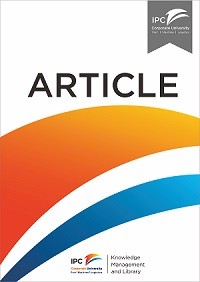Article
BAK Je-gha’s Thoughts on Logistics and Overseas Commerce in The 18th Century in Korea
BAK Je-gha is one of distinguished Silhakjas(Korean pragmatic
confucianists) in the 18th century in Korea. The most important thoughts of
BAK Je-gha lay in his words that properties could be increased by way of investment like a well and agriculture is like intestines and the wagon is like blood vessels in the human body. These are foresighted in that it nearly equals to Say’s words; “supply can create demand itself”, and nowadays logistics cost can affect competitiveness of industrial enterprises. No one except BAK Je-gha gave an idea that government could increase its national wealth and power through home and foreign trade in Korea, though someone mentioned the importance of commerce. Even Adam Smith, contemporary great economist of BAK Je-gha, gave an emphasis on domestic trade rather than oversea trade, for he wanted to point out defects of mercantilism and to assert the advantages of free trade. He also explained that capitals are increased by parsimony. As seen above, BAK's thoughts on distribution and commerce had originalities in comparing with those of contemporary Korean Confucianists and even Smith, father of modern economics.
Ketersediaan
Informasi Detail
- Judul Seri
-
-
- No. Panggil
-
ATC LO KIM b
- Penerbit
- Korean : The Korean Association of Shipping and Logistics, Inc.., 2009
- Deskripsi Fisik
-
26 P.
- Bahasa
-
English
- ISBN/ISSN
-
-
- Klasifikasi
-
LO
- Tipe Isi
-
-
- Tipe Media
-
-
- Tipe Pembawa
-
online resource
- Edisi
-
Volume 25 NUmber 1 June 2009 pp.139-163
- Subjek
- Info Detail Spesifik
-
-
- Pernyataan Tanggungjawab
-
Sung-june KIM
Versi lain/terkait
| Judul | Edisi | Bahasa |
|---|---|---|
| Transmission and Distribution of Electrical Energy | en | |
| Logistics Capability, Logistics Outsourcing and Firm Performance In an E-commerce Market | Vol. 38 Iss 5 pp | en |
Lampiran Berkas
Komentar
Anda harus masuk sebelum memberikan komentar

 Karya Umum
Karya Umum  Filsafat
Filsafat  Agama
Agama  Ilmu-ilmu Sosial
Ilmu-ilmu Sosial  Bahasa
Bahasa  Ilmu-ilmu Murni
Ilmu-ilmu Murni  Ilmu-ilmu Terapan
Ilmu-ilmu Terapan  Kesenian, Hiburan, dan Olahraga
Kesenian, Hiburan, dan Olahraga  Kesusastraan
Kesusastraan  Geografi dan Sejarah
Geografi dan Sejarah